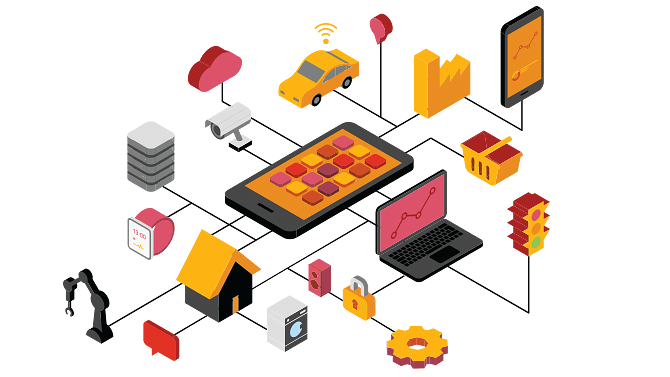
In the past years, organisations in the (semi) public sector like municipalities, Provinces, educational institutions, care institutions and housing corporations have started to work together more intensively in (temporary) alliances and networks. As their tasks and powers have become more arduous, but also due to the coherence of the problems and an increasing pressure on economies of scale, these organisations are trying to enter into cooperative partnerships to be able to deal with these new challenges together. Within cooperative partnerships, it is easier to share knowledge, pursue a common view or warrant integrality within a chain.
Examples are decentralizations in the social domain, reorganisations and administrative mergers of municipalities, regional energy and heat transitions, the housing question and cooperation in the execution of the so-called Regio Deals. Networking organisations in various forms and with various goals are booming.
Cooperative partnerships in this field are not new of course but are becoming more intensive. In spite of this, we have noticed that many of these partnerships do not lead to the desired result or are not able to meet the expectations of participants and stakeholders. This is why PwC has developed a practical method which conveniently maps all factors relevant to make a cooperation successful as well as the main pitfalls. This is based on academic research and our successful experiences in supporting municipal reorganisations, cross-domain use of resources in healthcare and cooperation in the triple helix like in the case of Regio Deals.

Public-private partnerships
There is a strong consensus that collaboration between various institutions and companies may be of substantial importance to meet the current and future demands of society. This is why the current government puts much focus on stimulating public-private partnerships (PPP).
We are convinced that cooperation between government bodies, institutions and companies is becoming increasingly necessary to realize societal changes. In a fast-changing society, a regional or competence-focused cooperation may be crucial to keep up with developments as well as reduce costs for society. We expect this to lead in the years to come to new hybrid forms of cooperation between public and private parties.
Weighing goals and interests
Entering into a cooperative partnership requires careful preparation by the intended partners. Questions that are important here include formulating a joint mission and vision, defining a business case, clear roles, tasks and responsibilities for everyone involved, aligning possible differences in laws and regulations and funding flows, and the design of a fiscal-legal structure which corresponds to the preconditions formulated.
Our integral method offers cooperating partners the necessary tools to work together effectively and with impact. We know the main opportunities and pitfalls and will be happy to be your guide in realizing a successful cooperation.
There are various ways in which we can support you: as a project leader/quartermaster, as a workshop and peer-coaching groups facilitator, by drawing up and testing business cases or advising on governance, legal aspects and fiscal matters. This also demonstrates the power of cooperation: combining these competences in one team offers a powerful integral approach to the questions cooperative partnerships-to-be are faced with.
Main themes
Service quality
It is becoming increasingly difficult for organisations to realize the highest quality of public services with the available means. More and more, organisations run up against the limits of what they can achieve individually. In addition, there is more and more focus on substantial cost savings. In the pursuit of improving the quality at lower costs, cooperation offers various opportunities, provided this is shaped in a well thought-out manner.

Public leadership
Leaders in the public sector need to manoeuvre cautiously, also and perhaps even in particular where cooperations are concerned. They manage organisations in a turbulent social and political-administrative environment. This is why it is becoming more and more important to learn fast and learn from each other. We can support you in this with a range of tried-and-tested tools, varying from benchmarks to visitations and peer-coaching groups.

Technical aspects
Each organisation has its own systems. From an internal perspective, it is already a challenge to align these systems, but on top of this, linking systems between organisations even entails extra questions: in the field of data exchange, underlying technology, data definitions, and system and information security. Over the past years, PwC has developed into an expert and innovator in these fields.

Legal and fiscal aspects
For a new cooperation in the making, a thorough inventory is needed regarding the legal framework. Based on this inventory, the cooperation needs to be designed legally and fiscally. This requires considering, for instance:
- The legal and fiscal design of the cooperation: will this be in the form of a contractual agreement or will a separate legal entity have to be established? And if the latter, which form will this have to have? And which agreements are needed to lay down the arrangements accurately?
- The applicability of rules from a competition law point of view or GDPR: for they can be decisive as to what information is permitted to be exchanged.
- The desired structure of the governance: which arrangements are made about decision-making, information exchange and accountability?
- How to work together in building the cooperation: this phase is often structured in an ad-hoc fashion, whereas a good project structure with the associated governance is essential for a thorough building of the cooperation.

Examples of how PwC support clients
- Regio Deals or other regional cooperative partnerships
- Cross-domain use of resources in the care of patients with dementia
- Cooperation quickscan
- Control frameworks PPS
- Real-time data connections
Regio Deals or other regional cooperative partnerships
The design of a legal, financial and organisational executive agency for a regional cooperation aimed at giving a sustainable boost to the living, residential and working climate. PwC has successfully supported the establishment of various executive agencies through a careful weighing of interests and objectives of all parties and stakeholders involved.
Cross-domain use of resources in the care of patients with dementia
Realizing cross-domain funding of Social Trials in various regions in the Netherlands and establishing integrated teams who form the infrastructure to bring Social Approach to Dementia (SBD) into practice. This approach leads to a better quality of life at lower cost.
Cooperation quickscan
PwC can perform a quickscan for you to get a clear view of the strengths and weaknesses of the cooperation. We performed these quickscans for various forms of cooperation like administrative mergers and shared service organisations. We also investigated several restructurings to further strengthen new municipalities.
Control frameworks PPS
Improving the internal control with respect to entering into, executing and terminating public-private cooperative partnerships. Via interactive workshops, a scan of the main contracts and formulating an easy-to-use risk & control matrix, the risks for the organisation are reduced and the effectiveness of cooperations improved.
Real-time data connections
The large diversity in source systems and the limited interaction between these systems often hampers a good cooperation and exchange of information between and within not-for-profit organisations. Together with cooperative partner ServiceHeroes, PwC built a unique platform which is able to connect systems, open up and exchange data in a standardized way ánd greatly enhance the user-friendliness for professionals in the work practice.



















